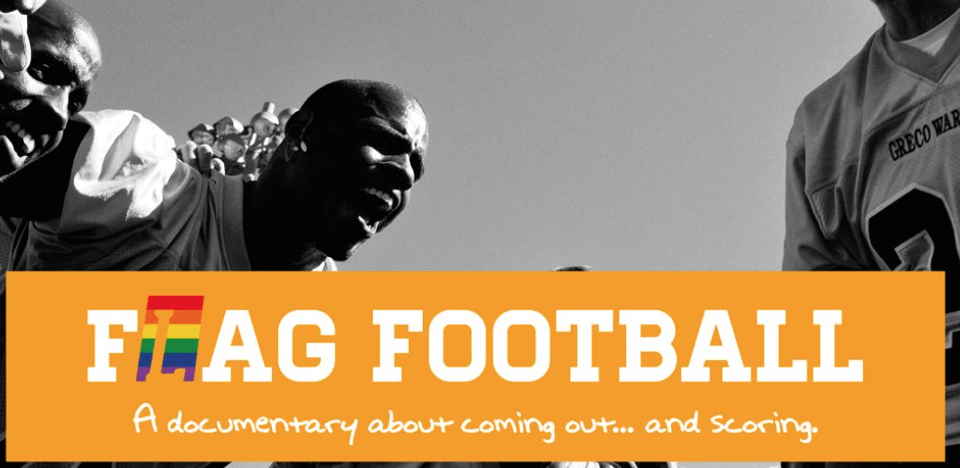Director and producer Seth Greenleaf attempts to shatter the hypermasculine limitations within football in his new documentary F(l)ag Football.
Screening all this week at the Cinépolis Chelsea, F(l)ag Football is an inspiring film that highlights toxic stereotypes in order to emphasize the underlying significance of their implications
For the most part the film follows the structure of any other sports story: audiences members watch with anticipation as the movie follows 3 elite football teams working towards winning a national championship, with tensions and anxiety serving as hurdles on the road to success. All of the players come from experienced athletic backgrounds and demonstrate immense talent in the game of football, but they’re also all gay. These teams compete within The National Gay Flag Football League, an organization founded in 2002 for gay athletes to participate in without feeling they have to hide or downplay a major element of themselves. F(l)ag Football highlights this league and its players, and in between shots of intense practices we are given glimpses into what makes the lives of these players so much different from that of straight athletes. The answer? A lot more of a struggle, but not much of a difference in athleticism. Without the healthy amount of emotional backstories from different players F(l)ag Football could’ve easily fallen victim to being quite the shallow sports story. It focuses on the teams working towards winning the “Gay Bowl” but what will draw the audience’s attention are the moving anecdotes from different players about finding their place in the league. The players are all impossible to dislike, and it’s their passion and personal stories that drive this film, not necessarily the sport itself.
What this film does an exemplary job of demonstrating through its subjects is how unnecessary and damaging stereotypes are on individual levels. When the idea of hypermasculinity comes to mind, football is one of its staple entities. Men proving their strength and resilience on the field gives the game a reputation of “manliness” that limits the idea of the type of people that can succeed in the sport. On another token it’s expressed in the film that within the gay community, there isn’t much space for those who take an interest in sports with such traditionally homophobic ties. The athletes in this film prove how outdated and unnecessary all of those cultural norms are, as they express how stereotypes have hindered their respective sports careers. All of these athletes found they reached their full potential in the league, because its where they finally weren’t forced to adhere to any sort of box.
Greenleaf has conceived a gem with F(l)ag Football. It manages to be both an entertaining sports profile and a story about identity that won’t make audiences a complete emotional mess. By striking this balance this film becomes an enlightening story with a message that viewers need to hear, that will also manage to leave them smiling.
